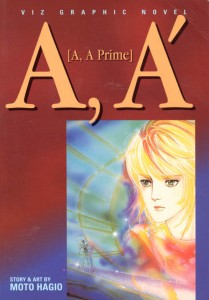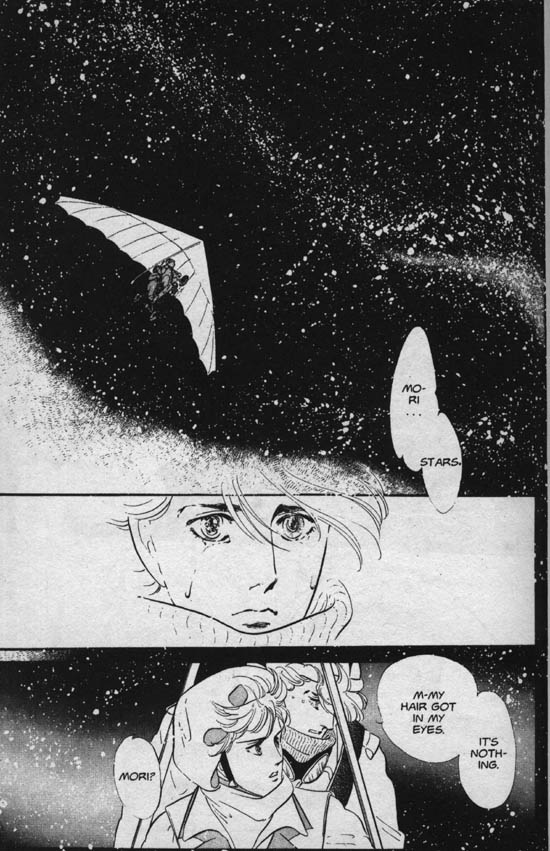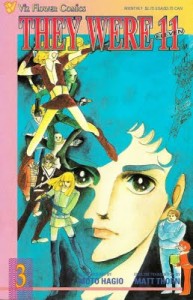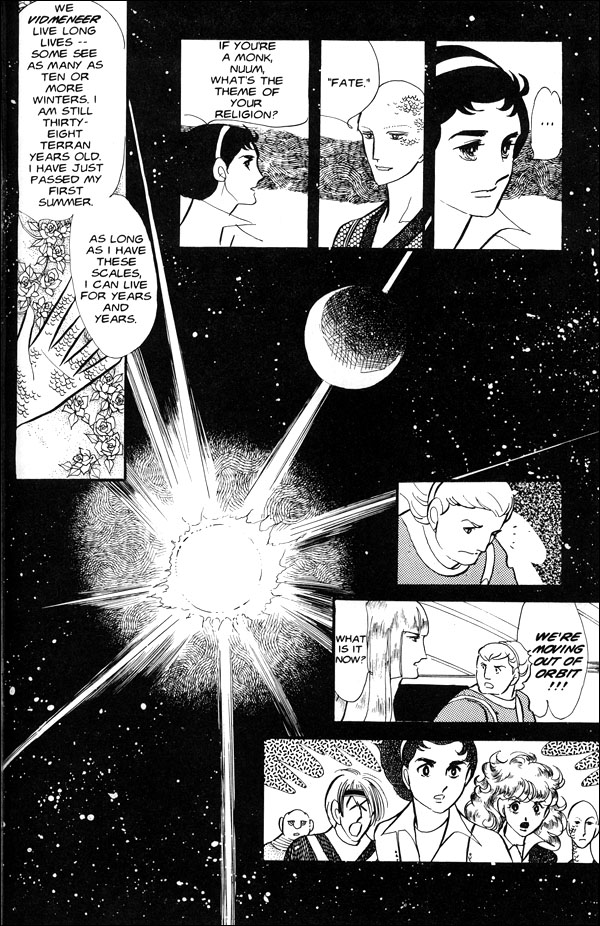 Comic, Vol. 7 | By Ha SiHyun | Published by Yen Press – Now that Patrick realizes that the girl Neil has fallen for is his own estranged girlfriend, Alice, he is filled with jealousy as Neil and Alice prepare for the school festival’s three-legged race together. Patrick’s partner in the race is a real surprise as well. Later, Alice is mesmerized when she sees Neil dance but is flustered when he confesses his feelings for her. Both Patrick and Alice experience wavering feelings throughout the volume–Alice for Neil and Patrick (shockingly) for ice queen Daria–but by the end they are both drawn back to each other, even if their timing is astoundingly unfortunate.
Comic, Vol. 7 | By Ha SiHyun | Published by Yen Press – Now that Patrick realizes that the girl Neil has fallen for is his own estranged girlfriend, Alice, he is filled with jealousy as Neil and Alice prepare for the school festival’s three-legged race together. Patrick’s partner in the race is a real surprise as well. Later, Alice is mesmerized when she sees Neil dance but is flustered when he confesses his feelings for her. Both Patrick and Alice experience wavering feelings throughout the volume–Alice for Neil and Patrick (shockingly) for ice queen Daria–but by the end they are both drawn back to each other, even if their timing is astoundingly unfortunate.
I have to admit that I just can’t seem to let go of my disappointment over the fact that this series seems to have entirely dropped its original premise–Alice’s pursuit of a career as a manhwa-ga–in favor of becoming just another high school romance. Don’t get me wrong. It’s a very charming high school romance but it is the story of an aspiring young artist that really made it stand out in the first place, and it is a real shame to have (apparently) lost that for good. This volume did not include even the slightest mention of Alice’s artistic dreams or Patrick’s current profession as a manhwa-ga, as though that had never been part of the story at all. That said, I’m as anxious as anyone to find out what happens in the Alice-Neil-Patrick-Daria love quadrangle and I’ll be counting the days until I’m able to read the next volume.
Neil has become an especially appealing character in this volume and I admit I even considered that it might be nice if Alice actually fell for him, since he would be much less complicated to love than Patrick is. It was especially gratifying to discover that his feelings for Alice hold up even after hearing the truth about their original meeting in the music room. On the other hand, Neil obviously has her propped up on a pedestal and that can rarely end well. Oddly, even Daria comes off well in this volume. Okay, “well” might be an exaggeration but she at least shows some of who she actually is and evokes some real sympathy at long last. Patrick and Alice remain as volatile and dense as all girls’ manhwa couples seem destined to be, which is perfectly fine with me.
Though there isn’t enough forward motion in this volume to satisfy my quest for a romantic conclusion, it is fun, fiery, and emotionally fraught, just as I have come to expect from this type of manhwa, and I mean that in a good way. Though the artwork isn’t as stunning as something like One Thousand and One Nights or even Goong, it has its very nice moments, and the visual storytelling flows quite well.
Though it has lost some of the charm and particular draw of its initial volumes, Comic is still a solid choice for fans of girls’ manhwa.
Review copy provided by the publisher.








 A, A’ [A, A Prime]
A, A’ [A, A Prime]
 THEY WERE ELEVEN
THEY WERE ELEVEN


